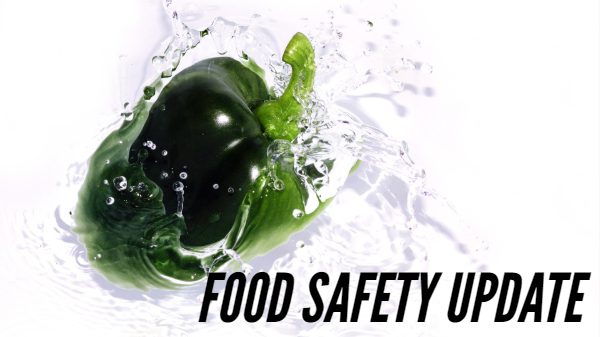A certain function in my mind relentlessly sorts items into Good News versus Bad News.
This process is often the opposite of useful, but since it is automatic, I can only control it to a small degree. Usually by remembering not to take it too seriously.
How, then, should I take food safety alerts—as Good News or Bad News? Recently BrightFarms of Rochelle, IL, announced a recall of some packaged salad greens from its greenhouse in Rochelle, which happens to be near where I live and which happens to supply Mariano’s supermarkets, where we shop regularly.

On the face of it, this is Bad News. Although I am not trembling in fear that some contaminated greens may have passed through my lips, it does send me looking through our produce drawer. From BrightFarms’ perspective, a safety recall is never good publicity.
On the other hand, I have to consider the fact that such announcements are made regularly, meaning that the industry (and the government) are carefully monitoring possible outbreaks of contamination. Food Safety News provides regular updates, which report occurrences like these not only here but internationally.
The Good News, then, is that there are mechanisms in place for monitoring breakdowns in food safety (even for pet food) and that these are widely reported.
Another piece of Good News is the newly announced release of “the only searchable food recall database that allows users to conduct a food recall search for FDA and USDA food product recalls,” FoodIndustry Counsel, a Milwaukee-based firm of lawyers and consultants for the foodservice industry.
One recent listing cites a July 26 recall from another greenhouse leafy greens producer, Old Soul’s Farms LLC of St. Paris, OH, complete with a link to the FDA announcement.
To be topical for a moment, food safety is not like getting an Olympic Gold medal. If you have won one, you will always be a medalist, whether you die, go mad, or become head of the Kim Jong Un Fan Club.
There is no finish line in food safety. There are always going to be slips, accidents, and bloopers, some of them tragic, some funny. Just ask the lady in Seattle who found a dead lizard in her restaurant salad.
Or just ask me. I once found a dead bug at the bottom of a tub of baby spinach greens. “No rinsing needed!” the label assured me. (I, of course, rinsed them and ate them anyway.)
Over the last century, Americans have seen great improvements in food safety. We can trust with some confidence that floor sweepings are no longer being dumped into canned meat, as described in Upton Sinclair’s classic novel The Jungle, published in 1906.
At the same time, safety procedures, like everything else on this planet, are imperfect, at constant risk of failure, and in continuous need of improvement.
Let me leave you with a motto to put on your banner:
Eternal vigilance is the price of food safety.



